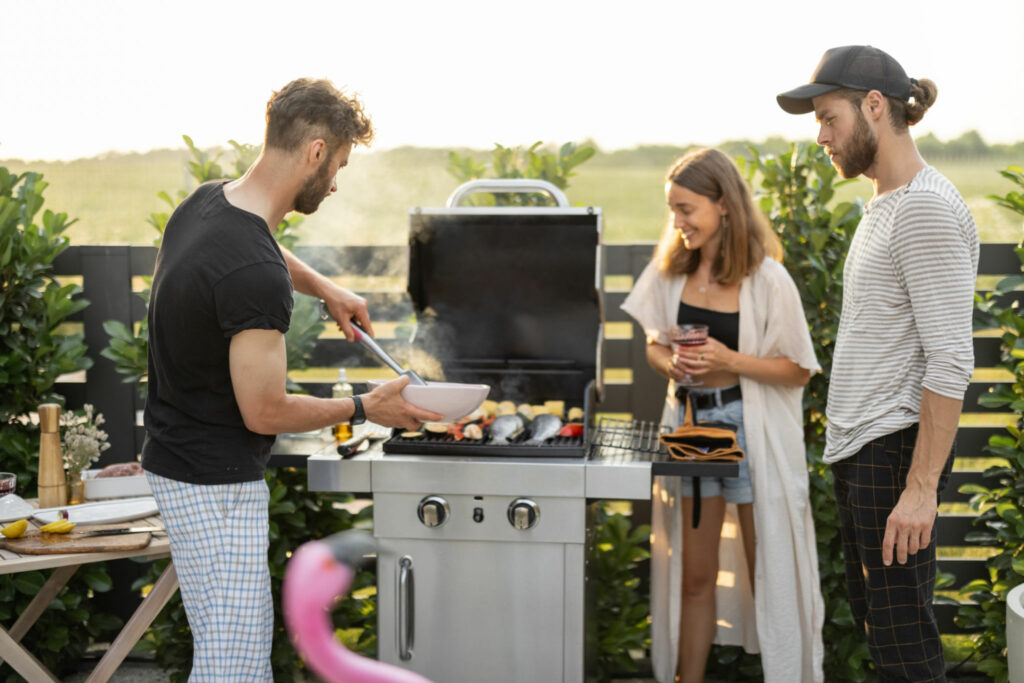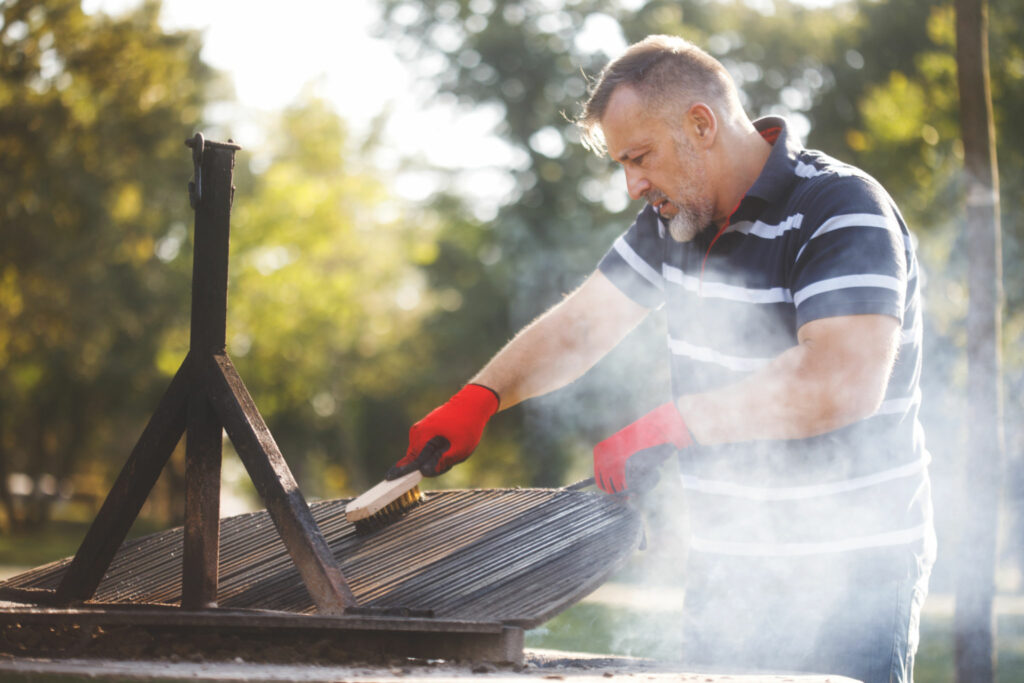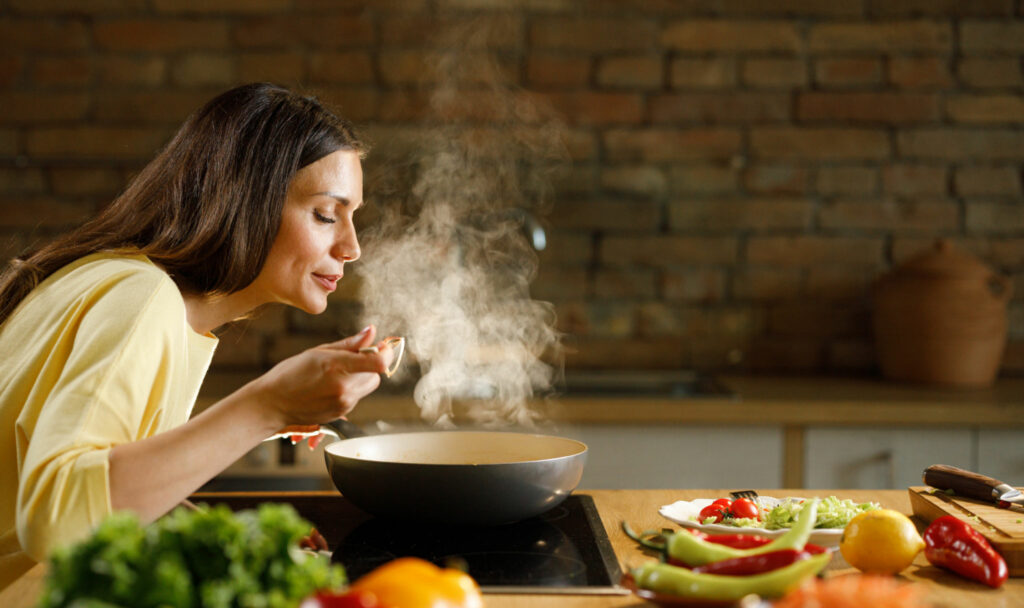Anyone who enjoys outdoor cooking knows the importance of having a grill. Not only does it make preparing food outdoors much easier, but it also adds a certain flavor that you can’t get from any other method. However, like all things, grills don’t last forever. So how will you extend the life of your grill? Continue reading to find out.
Get To Know Your Grill – Its Parts And How They Work!

Most of the people are familiar with the basics of grilling – heat up the coals, place the food on the grill, and wait for it to cook. However, not many people know the different parts of a grill and how they work together to create that perfect grilled meal.
Now, I’m not saying that you need to be a grill master before you can start cooking, but understanding the basics will help you in the long run. Below is a quick rundown of the different parts of a grill and what they do:
1. The Firebox.
This is where you place your charcoal or wood. If you’re using a gas grill, this is where the gas ignites to create the fire. In a charcoal grill, this is where you place your lit coals. It is essential to note that the size of the firebox will determine how hot your grill can get.
2. The Grate.
This is what you cook the food on. You must make sure that the grate is clean before cooking, as it’ll help to prevent sticking and make sure that the food cooks evenly. When it comes to choosing a grate, there are two main types – metal and porcelain-coated.
Metal grates are less expensive, but they can rust over time. Porcelain-coated grates are more expensive, but they last longer and are easier to clean. Read this useful post on how to remove rust from cast iron grates.
3. The Vents.
These are located in the firebox and help to regulate the amount of oxygen that gets to the fire. By adjusting the vents, you can control how hot the fire burns, which in turn affects how quickly the food cooks.
Some grills also have a temperature gauge, which is located on the outside of the firebox and helps to give you an accurate reading of the internal temperature.
4. The Ash Catcher.
This is a pan that is located underneath the firebox and helps to catch any ashes that fall through the grate. It’s essential to empty the ash catcher after each use, as this will help to prevent build-up and extend the life of your grill.
Now That You Know The Basics Let’s Get Into Some Tips On How To Extend The Life Of Your Grill.
How To Extend The Life Of Your Grill?

Extending the life of your grill is not as difficult as you may think. By following the tips below, you can prolong the lifespan of your grill and continue to enjoy tasty, grilled meals for years to come.
1. Keep It Clean.
This may seem like a no-brainer, but it’s important to clean your grill after each use. This means removing any food debris from the grate, as well as emptying the ash catcher. Not only will this help to prevent build-up, but it will also prevent rusting and other damage. You will enjoy this blog on how to clean a gas grill.
2. Cover It Up.
When you’re not using your grill, make sure to cover it up. It’ll protect it from the elements and help to prevent rusting and other damage. On the market, you will find all types of grill covers, from heavy-duty ones that can withstand the elements to basic ones that are more budget-friendly.
3. Store It Properly.
But if you are living in an area with cold winters, it is important to store your grill properly during the off-season. This means emptying of all fuel and completes drying. It’s also a good idea to cover it or store it in a shed or garage to protect it from the elements.
When spring rolls around, you can then give it a good cleaning before firing it up for the season.
4. Check For Leaks.
Before using your grill, it’s important to check for leaks. It can be done by placing a piece of cardboard under the firebox and turning on the gas. If there are any leaks, you can see liquid on the cardboard. Some leaks can be fixed with soapy water, while others may require a replacement part.
5. Tighten Loose Parts.
Over time, screws and other hardware can become loose. Be sure to check all of the screws and bolts on your grill regularly and tighten them as needed. It will help to prevent rusting and other damage. In addition, it’s a good idea to check the connections on the gas tank and hose to make sure they are tight.
6. Protect It From The Elements.
When not in use, you should protect your grill from the elements. This means storing it in a shed or garage if possible. If you do not have access to either of these, make sure to cover it with a tarp or other waterproof material. It is also a better idea to remove the propane tank and store it indoors.
7. Don’t Use It As A Trash Can.
It can be tempting to use your grill as a trash can, but this is definitely not recommended. Not only will it attract pests, but it will also lead to some serious build-up. Be sure to dispose of all trash properly.
8. Season Your Grate.
Seasoning your grate is a great way to prevent sticking and rusting. To season your grate, simply heat up the grill and then rub it down with vegetable oil. It should be done every few months.
9. Avoid Using Harsh Chemicals.
When cleaning your grill, it’s important to avoid using harsh chemicals. These can damage the finish and lead to rusting. Instead, opt for a gentle soap and water solution. Many people also swear by using vinegar to clean their grill.
10. Have It Serviced Regularly.
Just like any other type of machinery, grills need to be serviced on a regular basis. This means having a professional inspect it and clean it as needed. This is usually done once a year, but more often if you use your grill frequently.
What Foods You Must Not Put On The Grill?

Forget about trying to grill these foods; they will only stick and fall through the grate. You’re better off cooking them in a pan on the stove.
1. Wet Food
Wet or marinated food should not be put directly on the grill as the water will cause the fire to flare up. It’s best to cook wet food in a pan on the stove and then finish it off on the grill. It will still have that great grilled flavor without the risk of burning.
2. Delicate Fish
Delicate fish like tilapia and flounder will stick to the grill and fall apart. You’re better off cooking these types of fish. For a more robust fish like salmon, make sure to oil the grill first to prevent sticking. You’ll love this article on how to make grilled salmon.
3. Cheese
Cheese will melt and drip right through the grate. Now, if you want to add cheese to your grilled food, do so after it has been cooked. It’ll melt quickly, so be sure to add it right before serving. Also, consider using a metal pan to cook foods like quesadillas and grilled cheese sandwiches.
4. Eggs
Eggs will stick to the grill and be difficult to flip over. If you’re determined to grill them, consider using an egg ring to help keep them intact. Better yet, cook them in a pan on the stove and then finish them off on the grill.
5. Pancakes
Pancakes are too delicate to be placed directly on the grill. If you want grilled pancakes, cook them on the stove first and then finish them off on the grill. You could also try using a waffle iron for a fun twist on grilled pancakes.
6. Potatoes
Potatoes usually take longer to cook than other vegetables, so they will likely stick to the grill. With that said, you could parboil them before grilling to speed up the cooking time. It’s also a good idea to cut them into small pieces, so they don’t stick as much.
7. Vegetables
Vegetables most likely will stick to the grill, so it’s important to oil both the vegetables and the grill before cooking. You could also try using a grill basket to cook delicate vegetables like corn on the cob.
Conclusion
By following these simple tips, you will help your grill last for years to come. Regular cleaning and maintenance will keep your grill in good condition, and using the proper tools and techniques when cooking will also protect your investment.
Grill safely this summer by keeping these guidelines in mind, and enjoy delicious meals cooked on your own backyard barbecue! GrillCharms always provides the best grilling tips to help make your experience more enjoyable. Thanks for reading!
- The 9 Best BBQ Grills for Smoking Brisket - December 29, 2022
- 6 Mouth Watering Grilled Shrimp Recipes - September 16, 2022
- 6 Delicious Grilled Desserts - September 16, 2022
